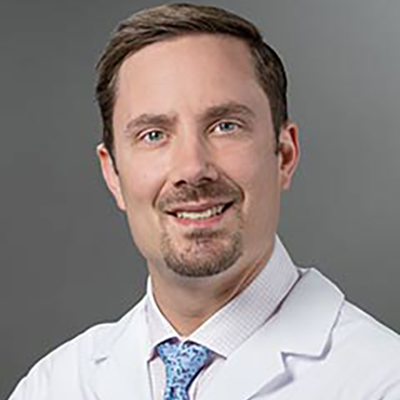
Paul V. Viscuse, MD
Assistant Professor in Oncology
In this edition of Grand Rounds in Hematology and Oncology from October 2023, Patrick M. Dillon, MD, University of Virginia Hematology & Oncology, Charlottesville, Virginia, introduces Paul V. Viscuse, MD, Assistant Professor in Oncology, Emily Couric Clinical Cancer Center, University of Virginia, Charlottesville, Virginia. In this 43-minute presentation, Dr. Viscuse presents a comprehensive overview of the evolving treatment landscape for metastatic hormone-sensitive prostate cancer (mHSPC), emphasizing the importance of personalized therapy. The talk includes a short Q&A discussion at the end.
Dr. Viscuse outlines the historical context of androgen deprivation therapy (ADT) as the foundation of advanced prostate cancer treatment. While ADT alone has shown survival benefits, the advent of treatment intensification has significantly altered the therapeutic approach. He discusses pivotal clinical trials that established the role of intensified systemic therapies. The CHAARTED study demonstrated improved overall survival by adding docetaxel to ADT in high-volume disease. Studies like STAMPEDE and LATITUDE validated the benefit of abiraterone plus ADT, showing substantial survival gains. Second-generation androgen receptor inhibitors such as enzalutamide (ENZAMET, ARCHES) and apalutamide (TITAN) have also proven effective across disease volumes. Moving toward triplet therapy—adding agents like darolutamide or abiraterone to docetaxel and ADT—offers even greater benefit in select high-volume, de novo metastatic patients.
Importantly, Dr. Viscuse stresses the heterogeneity of advanced prostate cancer. He highlights the need to tailor treatment based on disease burden, comorbidities, prior therapies, and patient goals through illustrative cases. Not all patients benefit equally from intensification; in some, ADT monotherapy may remain appropriate.
Future directions include trials exploring PSMA-targeted therapies and real-world registries like the IRONMAN study to capture diverse treatment patterns and outcomes. Dr. Viscuse also introduces a UVA-based initiative investigating remote-monitored exercise as a supportive measure to mitigate therapy-related fatigue.
